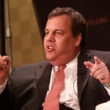Business as Usual for K Street—The arrival of a new Democratic Congress may bring an end to business as usual on Capitol Hill for big business. But it’s not really the end. Lobbyists on Washington’s K Street corridor are working overtime to convert old enemies into new friends.
In the last days before the election, business PACs shifted campaign contributions to Democratic candidates. In the days after the Democratic victories, major corporations began aggressively hiring Democratic lobbyists in good standing with the incoming majority. Senior Democratic aides in Congress were offered $600,000 salaries to move across town, ten times what they earned on the Hill. One Medicare expert for the House Democrats received three job offers from different pharmaceutical companies in one day. Democratic lobbyists have been snatched up by the likes of Wal-Mart, Exxon Mobil, British Petroleum, Shell Oil, Merck and the Pharmaceutical Research and Manufacturers of America.
The new hires include the former chiefs of staff to Speaker of the House Nancy Pelosi and Senate Finance Committee Chairman Max Baucus and former members of Congress such as Louisiana Senator John Breaux. Big business is betting that their new allies can convince fellow Democrats not to follow through on their economic-populist campaign promises. As an e-mail from executives at the drug company GlaxoSmithKline put it, “These relationships should help us moderate proposals offered by Senate Democrats.” The pharmaceutical industry, which spends $100 million a year on lobbying, fears legislation that would push the government to negotiate lower drug prices under Medicare. Oil companies want to preserve billions in tax breaks. Behemoths like Wal-Mart shudder at the prospect of workers winning the right to organize unions.
Democrats have vowed to pass a package of ethics and lobbying reforms in their first one hundred hours. How they respond to the insatiable appetite of K Street could be the more important test.
Wolfowitz’s Latest War—When Paul Wolfowitz left the Bush Administration to become president of the World Bank in 2005, 92 percent of the Bank’s employees viewed him negatively, according to an internal poll. The intellectual architect of the invasion of Iraq initially silenced his critics by committing the Bank to fighting global poverty and keeping an open door.
A year and a half into his tenure, however, the honeymoon has come to an end. Half of the Bank’s top executives have left since Wolfowitz took over, including the former Prime Minister of Peru and the Bank’s vice presidents for Africa and the Middle East.
In their place Wolfowitz has increasingly relied on an inner circle of Republican Bush Administration appointees, as critics feared he might. The coterie includes a former spokesman for Vice President Dick Cheney; a Pentagon budget chief who predicted that the war in Iraq would cost “only” $80 billion and oil revenues would “pay for the rest,” and a former Republican lobbyist who now heads the Bank’s internal watchdog unit. A longtime Bank staffer, writing in Britain’s New Statesman, likened the behavior of Wolfowitz’s lieutenants to “a tornado in a small town.”
The key controversy of the moment is Wolfowitz’s plan to shift Bank resources to Iraq and open an office inside the Green Zone, a decision the Wall Street Journal described as “a departure from longstanding World Bank practice of steering clear of countries engulfed in heavy violence.” Critics contend that Wolfowitz is simply using the Bank to promote the Bush Administration’s foreign policy. “Most insiders,” the New Statesman writes, “believe the Bank is becoming the very caricature of the U.S.-dominated, ideological agency that they have always denied it was.”
Party of One—Connecticut for Lieberman, the party behind Joe Lieberman’s successful independent bid for the U.S. Senate, was always a party of one. Except that the one person is no longer Joe Lieberman.
A coup of sorts has occurred. John Orman, a professor at Fairfield University and critic of the senator, “seized control of the Connecticut for Lieberman Party . . . after registering as its sole member and electing himself as chairman,” the Stamford Advocate reports. Orman then “seconded the nomination, cast his vote for himself and proceeded to establish party rules.” Orman wants the Federal Elections Commission to rule on the legality of the party. He promises, however, “that he has no plans to sue himself.”






0 Comments